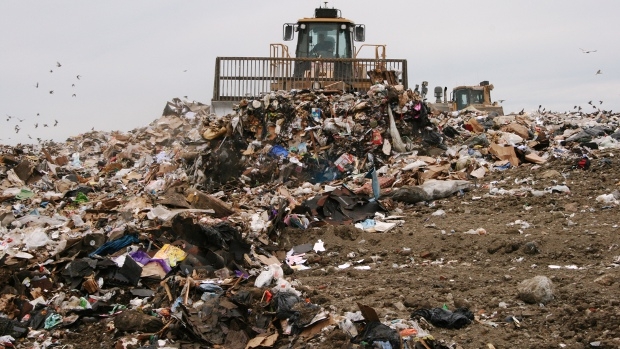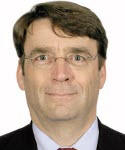Study sees global trash avalanche
- June 18, 2012
- By Jim Johnson

File: Shawn Wright, Waste & Recycling News A new report predicts municipal solid waste will increase from 1.43 billion tons per year now to 2.42 billion tons per year in 2025.
World Bank researchers predict a staggering increase in municipal solid waste generation during the next 13 years. And the trash challenges beyond that date could be even more daunting.
A new report, titled "What a Waste: A Global Review of Solid Waste Management," from the World Bank predicts MSW will increase from 1.43 billion tons per year now to 2.42 billion tons per year in 2025. The cost to deal with all that trash also is expected to nearly double, from $205 billion to $375 billion annually, the organization said.
That's a lot of trash and a lot of cash.
 Dan Hoornweg
Dan Hoornweg "I guess the big takeaway is things are pretty ugly today when it comes to solid waste, but they're getting way worse very fast. And that the world, particularly cities, but all of us, need to do a lot more in the solid waste sector," said Dan Hoornweg, co-author of the report.
His organization, which helps developing countries with financial and technical assistance, has examined waste generation in past reports on a more regional level. But this is the first time the World Bank has come out with a global perspective.
"The thing is once you put them all together, it becomes a much bigger picture and it becomes a little more dire, I suppose, or alarming in the sense of just how big the challenge is and how fast it's growing," he said.
"And then the part that probably is the most surprising is how fast some of the budget requirements are growing in the low-income country cities. They are already unable to pay for it today. How are they going to do it in 10 [to] 12 years?" he said.
As executive director of the Solid Waste Association of North America, John H. Skinner also serves as a board member of the International Solid Waste Association (ISWA), a global nonprofit group that promotes and develops sustainable and professional waste management. He's seen first-hand the challenges that areas around the world face when it comes to solid waste management.
"It's the basic lack of adequate infrastructure to even collect the wastes, let alone to dispose of them and manage them in an acceptable way," Skinner said.
"It has gotten worse because of the increased quantities of the waste material and the increased populations in many of these counties. These counties have developing economies and they don't have funds to do much of anything. And, generally, they don't look at waste management as an issue of high priority."
ISWA members will be at the upcoming Rio+20 United Nations Conference on Sustainable Development in Brazil with a call for a significant increase in aid for developing countries to help with the problem, Skinner said.
"I think the international community needs to step up to this," he said. "You start with the World Bank themselves. They should be directing more and more of their funding to those types of things as well as all of the agencies and all of the developed countries, including the United States.
"Waste management should be a much higher priority than it is," Skinner said.
Urbanization, Hoornweg said, plays a key role regarding increased waste generation rates.
"Waste is a function of urbanization, same with greenhouse gas emissions. It's basically a byproduct of our lifestyle as people get richer. Moving to cities makes you richer. You buy more stuff. You throw more stuff out," he said.
" … So basically, if you are rich enough to throw out garbage, in theory, you should be rich enough to clean up after yourself," Hoornweg said.
With the world moving into a fast-paced wave of urbanization, he said, the challenge is only going to grow beyond 2025.
Because the numbers become more fuzzy, the World Bank did not include information beyond that date in the report, Hoornweg said. But the trend is obvious.
"The rate, of course, is growing. It isn't as if [the world will] hit peak waste in 15 years. It's likely to double after that still. That's a lot of stuff," he said.
Even with mountains of trash ahead, the co-author has what he calls "lots of hope."
"We'll figure it out. … I liken it to being a little bit like we're 20 or 30 pounds overweight. We know we have to do something sooner or later. We will. It's just the longer you wait, the more difficult it is."
![]()
w w w . w a s t e r e c y c l i n g n e w s . c o m
copyright 2012 by Crain Communications Inc. All rights reserved.